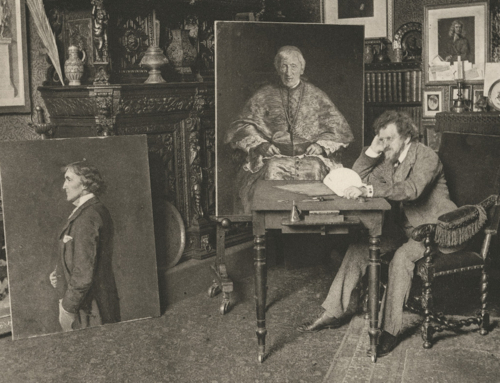What shall I render unto the Lord, that I can recall these things and yet not be afraid! I shall love Thee, Lord, and shall give thanks to Thee and confess Thy name, because thou hast forgiven me such great sins and evil deeds (St. Augustine, Confessions II.7)
Memory is a peculiar thing. It can be the source of joy and nostalgia, a reliving of some of the happiest times in our lives. But it can also be a source of pain and grief, a testament to our failures and to the various trials that make this world a “vale of tears.” Each of us can recall events in our lives that we might wish had not happened: a harsh word spoken to a loved one; an ordeal that has scarred us physically, mentally, or both; a humiliation that put our brokenness on full display. How should we consider those aspects of our life that bring us the most shame and pain? In St. Augustine’s Confessions we see a profound reflection on memory as a witness to the mystery of providence. By seeing our past sins in the light of God’s care for us, they can become opportunities for growth in the spiritual life.
Written in the form of a prayer, the Confessions recounts Augustine’s upbringing in northern Africa and the winding path that led him to embrace the Christian faith after years of searching. Early on in the work he explains his aim in writing:
Not to Thee, O my God, but in Thy presence I am telling [this account] to my own kind… to that small part of the human race that may come upon these writings. And to what purpose do I tell it? Simply that I and any other who may read may realize out of what depths we must cry to Thee. (II.3)
St. Augustine here articulates one of the fundamental principles of the spiritual life: self-knowledge. In reviewing his past, Augustine sees in his sins not merely objects of disdain (though they are that); he also sees in them reminders of his frailty and his need for God’s mercy. Painful though the memories of our failures can be, these memories also can serve as an antidote to pride. When we recall how often we have fallen, we come to realize our utter dependence on God. Indeed, considering our failures from this perspective can transform them into occasions of gratitude, even of joy. Later on Augustine prays:
Grant me, I beseech Thee, to retraverse now in memory the past ways of my error and to offer Thee a sacrifice of rejoicing. For without Thee, what am I but a guide to my own destruction? Or at my best what am I but an infant suckled on Thy milk and feeding upon Thee, O Food incorruptible? (IV.1)
Rather than simply wallowing in his misery, St. Augustine sees in the more unsavory episodes of his life the mystery of divine providence: God comes to us in our weakness and uses even our mistakes to draw us to Himself, our true end – and this is cause for rejoicing.
How did St. Augustine come to this conviction? His initial conversion, famously recounted in Book VIII of the Confessions, was sparked by a child’s sing-song chant, “Take and read, take and read.” This chant drove him to open up the Scriptures and to entrust himself to Christ. But for Augustine the seal of this conviction came through the sacraments. Describing his reception of baptism (together with the son he had conceived out of wedlock), he remarks, “We took him along with us, the same age as ourselves in Your grace, to be brought up in Your discipline: and we were baptized, and all anxiety as to our past life fled away” (IX.6). There they stood, the father and his son, a living reminder of his sinful past, together washed clean in the waters of baptism.
Like many of us, even after receiving this newfound freedom, St. Augustine harbored doubts about his own weakness. What sustained him through these misgivings was the Eucharist. At the end of Book X of the Confessions, Augustine prays:
He Thy only One, in whom are hidden all the treasures of wisdom and knowledge, has redeemed me with His blood. Let not the proud speak evil of me, for I think upon the price of my redemption, I eat it and drink it and give it to others to eat and drink; and being poor I desire to be filled with it among those that eat and are filled: and they shall praise the Lord that seek Him. (X.42)
At the heart of Christian worship are the words, “Do this in memory of me.” By regularly recalling and participating in Christ’s great sacrifice and seeing our own past in its healing light, we, too, can recognize God’s love for us and face our failures with confidence that “in all things, God works for the good for those who love Him” (Rom 8:28).
✠
Image: Fr. Lawrence Lew, O.P., St. Augustine (Sta Maria Minerva, Rome)







